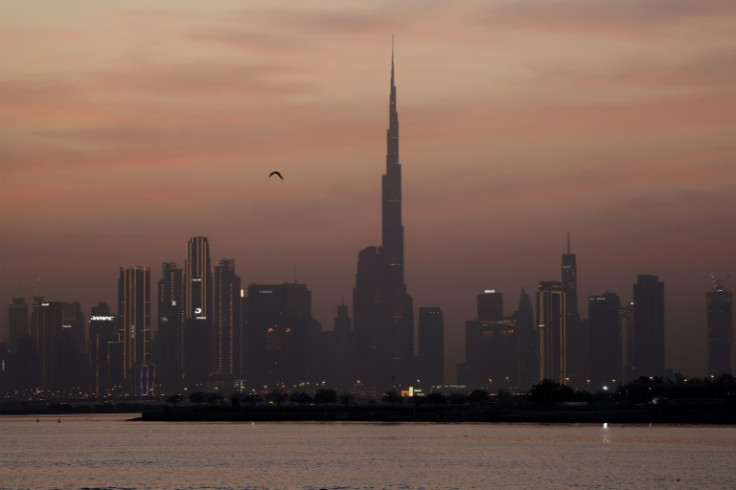
Rights groups are preparing for the COP28 climate talks in the United Arab Emirates with trepidation, fearing surveillance and detention under the oil-rich monarchy's strict criminal justice system.
Highly attuned to international scrutiny, the UAE, where unauthorised protests are illegal, has said it would permit demonstrations in designated areas of the COP28 site, a far-flung development in the Dubai suburbs surrounded mostly by desert.
But those assurances, and a pledge to host the "most inclusive" edition yet of the United Nations climate talks, have done little to assuage campaigners, who say they plan to raise human rights issues during COP28.
"We are deeply concerned about people being detained and arrested," said Asad Rehman, lead spokesperson for the Climate Justice Coalition, which is planning actions on the ground.
"Then there is the wider concern about the scale of surveillance, particularly digital surveillance," the activist told AFP, adding: "We know the UAE has the technology to monitor digital communications."
The UAE, an autocratic federation of seven sheikhdoms, bans unauthorised protests, outlaws homosexuality and prohibits criticism of rulers and speech that is deemed to create or encourage social unrest.
Defamation as well as verbal and written insults, whether published or made in private, are prosecutable by law.
The country's penal code also criminalises offending foreign states or jeopardising ties with them.
In 2020, a Jordanian resident of the UAE received a 10-year prison sentence over Facebook posts criticising the Jordanian royal family and government, according to Human Rights Watch (HRW).
Amnesty International and HRW have accused the UAE of detaining at least 64 Emiratis for political reasons. Authorities, however, accuse them of links to the outlawed Muslim Brotherhood group.
The Emirati detainees include Ahmed Mansoor, who has been described by activists as "the last human rights defender" in the UAE.
Mansoor, who openly criticised the authorities, was arrested in 2017 under the Gulf state's cyber-crime law.
He was sentenced to 10 years in prison the following year after being convicted of spreading false information on social media and harming the reputation of the state.
"The UAE has suppressed any kind of domestic civil society forming by imprisoning... Emiratis who have expressed even mild criticism," Devin Kenney, Amnesty's UAE researcher, told AFP.
"Not for the first time, a COP gathering is being held in a highly repressive state."
To soothe concerns ahead of the summit, the UAE has said "there will be space available for climate activists to assemble peacefully and make their voices heard" at COP28.
But guidelines drafted by the UAE's COP28 team and published on the UN's website for the climate talks warned that the "laws of the UAE prohibit the spread of disinformation, fake news or making defamatory statements verbally or on social media".
In a message tailored specifically to LGBTQ attendees, it asked "all visitors and residents to respect the UAE's cultural and societal values".
Broader restrictions issued by the UAE Media Regulatory Office and posted to the website of the UN climate agency last month have since been removed.
The guidelines requested that journalists "refrain from publishing anything that could offend directly or indirectly the ruling regime" of the UAE or that "could be offensive to the national unity and social cohesion" of the country.
In a statement to AFP, the UAE's COP28 team called the document "an old guide," saying "its content is out of date and not relevant for media" attending the talks.
Large protests have been common at most previous COPs. Limited rallies were allowed at the last UN climate talks in Egypt, where authorities regularly crack down on demonstrations and detain activists.
This year, protests will mostly be confined to the "Blue Zone" of the COP site which is managed by the UN rather than UAE authorities.
"No actions, no events from civil society are taking place outside the COP venue because of security concerns," said Rehman.
He said activists at COP28 are planning to denounce the UAE's treatment of migrant workers, its detention of civil society actors, as well as its fossil fuel production -- all taboo subjects for authorities.
"We have been open with the COP28 presidency and the UN and they are well aware... that one of our calls is that there will be no climate justice without human rights," Rehman said.
A Kenyan activist who has participated in three previous COPs, including the one in Egypt last year, added another layer of worry.
"The safety and security concerns I have right now as someone going to COP is that I am a trans girl and I would have to mask that," said the activist, who spoke on condition of anonymity due to security concerns.







